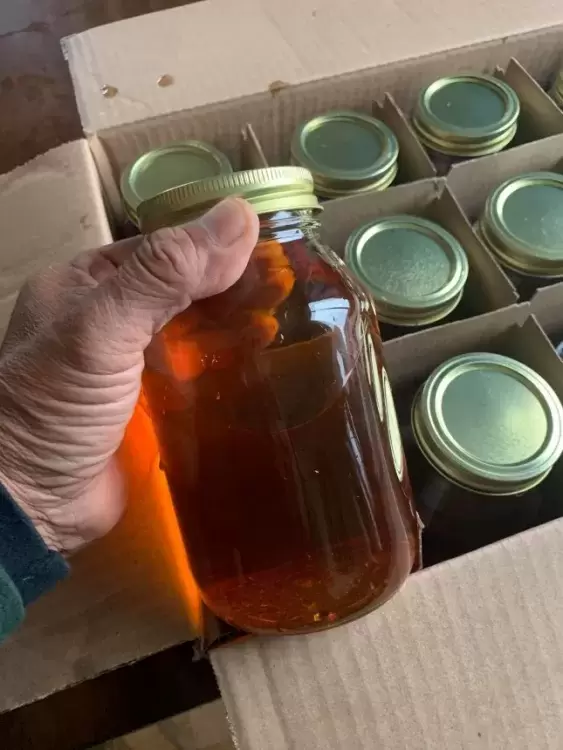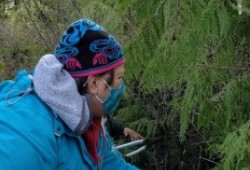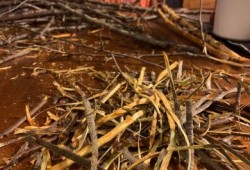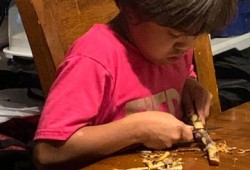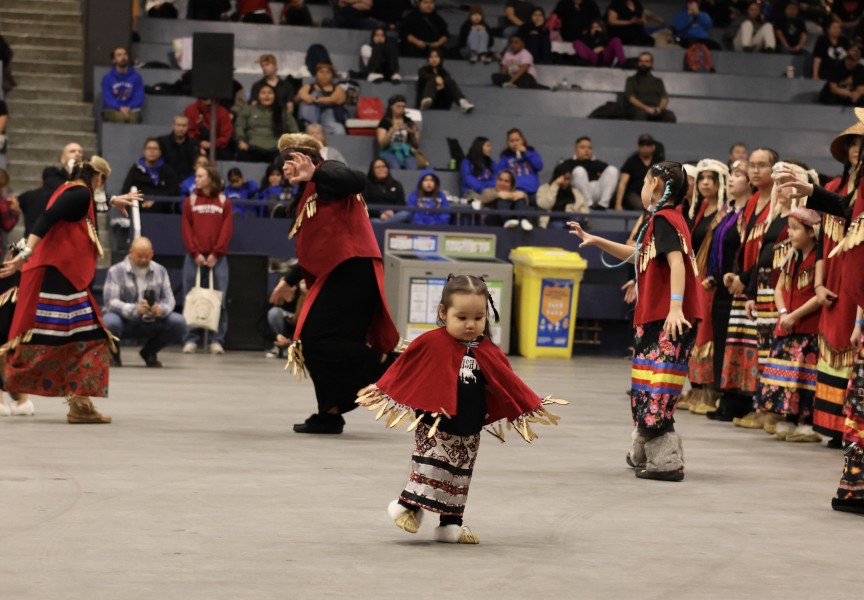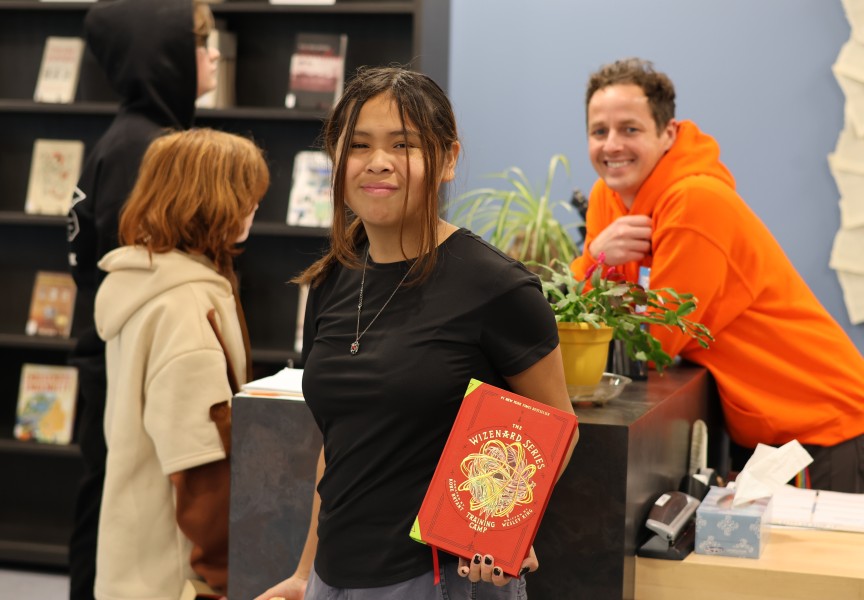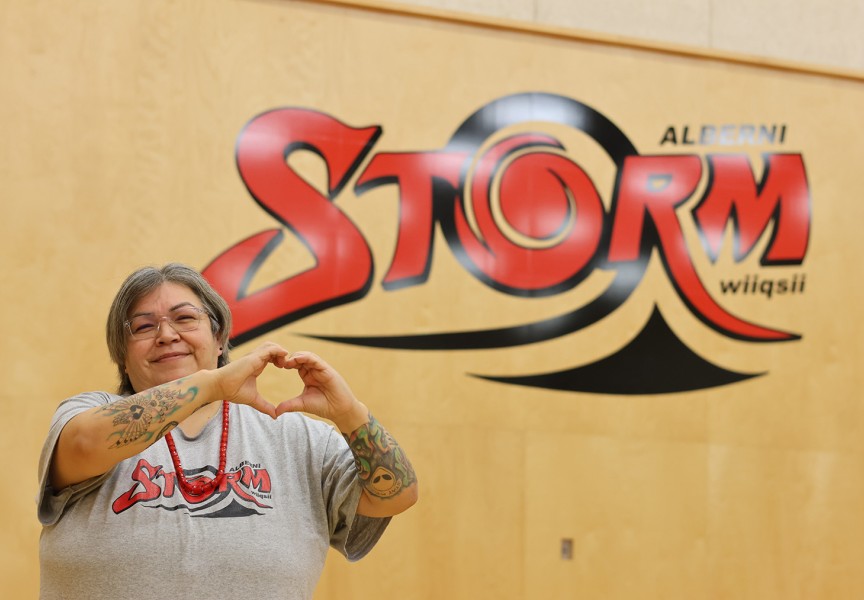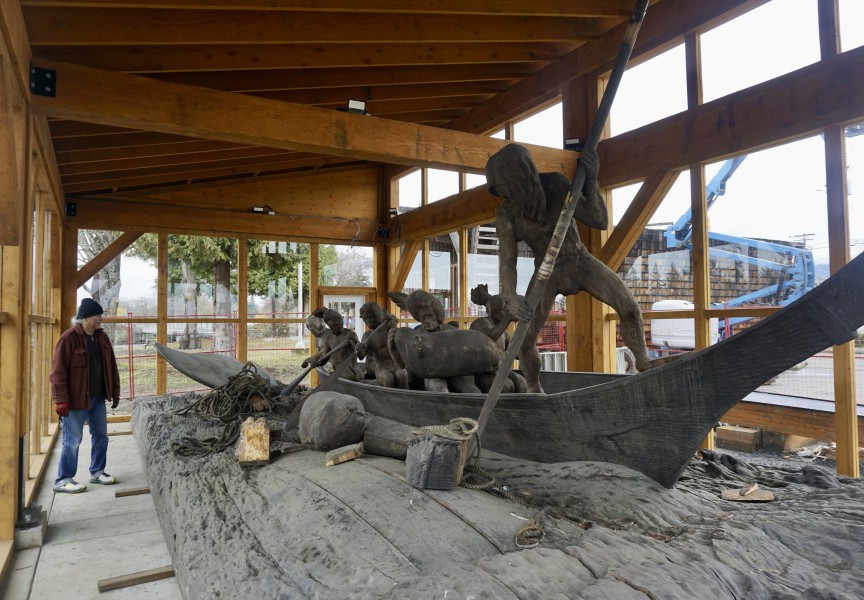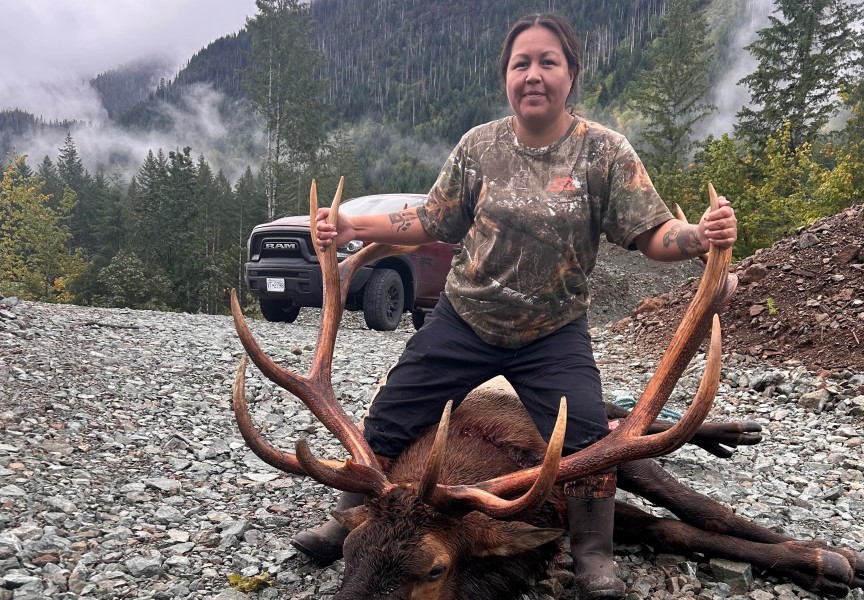One of his earliest memories is paddling around Hesquiaht territory with his grandmother, Katherine Lucas, collecting medicinal plants.
“She was my mom’s mother and when I was about seven or eight years old, I remember she would row us to places to pick medicine,” said Qaamina Hunter of Ahousaht.
He recalls seeing his grandmother standing by a river. She called her grandson to stand by her side while she did a prayer chant.
“Then we would go pick medicine,” said Hunter.
As he grew older, about the age of 11 or 12, Qaamina was back in Ahousaht where he learned more about harvesting ingredients for medicine under the guidance of his parents, Stanley and Katie Sam.
“My father used to tell me there are teachings about picking medicine,” said Hunter. “I used to pick the root, but my dad said if the plant knows you and it recognizes your spirit then it will produce for you all the time.”
From there Hunter learned to pick certain parts of the plant and to leave enough there so that it can recover and keep producing medicine.
Qaamina and his wife Ruth help people in Ahousaht struggling with addiction and those needing other forms of spiritual or emotional support.
“We do retreats; we help people struggling with drugs and alcohol,” said Hunter.
Since the pandemic brought further restriction in mid-November, Ahousaht has come up with a unique plan to support addicted members while keeping the community protected from outside travelers. During these retreats Hunter sometimes takes people on walks through the forest to teach them which plants to pick and proper harvesting methods.
“We gather medicines for whatever they need; it could be detox, anxiety, or stress,” Hunter said.
Besides detox, the Indian medicine they are making helps to build their immune systems.
Praying and belief in the power of the gifts from the Creator, says Hunter, is the most important part of Indian medicine.
“If someone asks for medicine and I don’t have any I start praying,” he said.
From the time he leaves his home to his arrival at the forest, Hunter prays to be guided to the appropriate medicinal plants.
After decades of harvesting medicinal plants, Hunter has many familiar places that provide what he needs, and he’s teaching his grandchildren all the steps in making medicine.
“When I am there (in the forest), I will chant. I don’t know how to describe it but it’s like it draws you to the right plant,” said Hunter.
He went on to say that he was taught that as long as you are moving, your prayers and your spirit are guiding you. And when you’re done picking, you give thanks and leave with honor.
With his 11 grandchildren that live with him, Hunter says they pray on their way home.
“I tell my grandchildren to pray for the person that needs the medicine while we harvest; these are the teachings we give them,” he added.
The grandchildren range in age from eight to 17, and all eleven of them are learning about Indian medicine from their grandparents.
“We all sit at the table together working on it (medicine). As long as you’re touching the medicine, you are cleansing yourself,” said Hunter.
Qaamina and Ruth have faced tragedy in their marriage, losing three of their children. Two were lost in a plane crash.
“I miss my children, a lot,” he shared. “Working on medicine soothes me, it brings me comfort.”
Qaamina firmly believes in the healing powers of the medicine his family makes.
“Someone asked if it would work for diabetes, we said yes, if you pray for it,” he said.
He shared the story of a woman that was battling cancer. She started taking medicine that he made to help deal with her stress and anxiety, and after taking it over several weeks she beat cancer.
Ruth, Qaamina and family have made over 400 quarts of medicine that they deliver to people’s doors in Ahousaht.
“We’re getting donations of jars from Cermaq and First Nations Health Authority, and the kids drop the jars off at the door and knock – there is no contact,” he shared.
The family is getting requests for medicine from as far away as Victoria and Prince George. They sent ingredients to make medicine to Zeballos when relatives became ill with COVID-19.
“My nephew was so sick he said he was afraid to go to sleep – he was afraid he wouldn’t wake up,” said Hunter. “I told him to pray when he takes the medicine, pray for what you need.”
The nephew and his wife have recovered and are grateful for the medicine.
He said they were taught that these plants are gifts from the Creator, so it wouldn’t be proper to keep it for themselves.
The demand for medicine is so great that the family has begun freezing medicinal plants to keep up with the need. When they’re done, they bring the trimmings back to where they got it from, giving thanks.
“It’s all about prayer and staying connected,” said Hunter.

